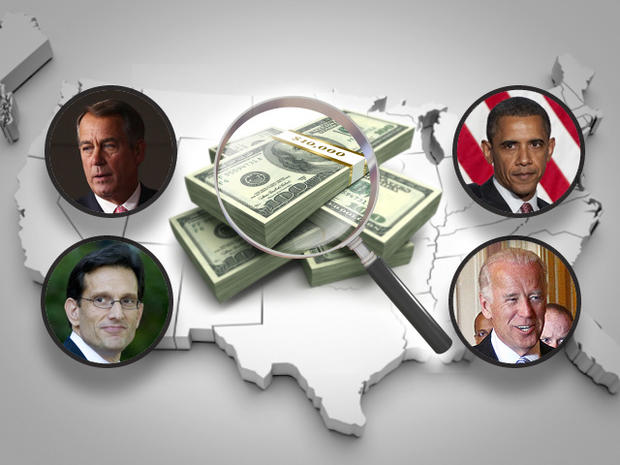Congress fixes its own crisis
Former White House Chief of Staff Rahm Emanuel famously said "you never want a serious crisis to go to waste." He was, of course, talking about using the pressure of a crisis to achieve what would not be possible in a more relaxed atmosphere.
The debt limit crisis wasn't that crisis. It was a crisis of Washington's own making and one that most would agree Congress failed to adequately address because the the United States still faces looming budget deficits and the possibility of a downgrade to its credit rating.
"Congress has taken a positive first step by enacting a strong down payment on deficit reduction and putting in place a process to achieve additional savings, but the plan doesn't do enough to stabilize our debt, nor does it make any meaningful structural reforms to address our nation's long-term fiscal problems," said fiscal commission co-chairs Alan Simpson and Erskine Bowles. Their plan, mostly ignored since its release late last year, would have cut $4 trillion from deficit spending in the coming decade and would eliminate many tax loopholes that primarily benefit the top third of earners.
The tax question is the big one left unsettled by the short-term agreement between President Obama and congressional Republicans. House Speaker John Boehner and Senate Republican Leader Mitch McConnell have vowed not to appoint anyone who might propose increasing taxes to the 12-person bicameral Super Committee tasked with finding another $1.5 trillion dollars or so in savings by Thanksgiving.
CBSNews.com special report: America's debt battle
What's unsaid about that is a take on the old Washington saying, "it depends on what the meaning of a tax increase is." On CBS' "Face the Nation" Sunday, McConnell told host Bob Schieffer that the committee can look at many things, including tax reform.
"The whole idea behind tax reform is to lower the rates and remove a lot of the preferences. And I think there's a pretty strong bipartisan feeling that that would be a very good thing for the country. It would be good for economic growth," he said.
Most of the tax code is a series of deductions, credits and rebates; basically government spending to ask people and companies to undertake certain behaviors: buying homes, buying fuel efficient cars, using ethanol in gasoline, etc. But unfortunately, many of those tax breaks reward behavior that would be normally undertaken without the extra incentives, including many for businesses. A lot of those tax breaks were put into the tax code by the diligent work of lobbyists over many years.
A summary of the debt ceiling compromise
Boehner: Debt committee could recommend tax hikes
Deal sets up December showdown, despite talk otherwise
Lobbying for special treatment is part of the business of government.
While many in the tea party decry the size of government, the business of government is booming. Many of the tea party organizations themselves, like the Tea Party Express, are political organizations built around government that make their living off the process of elections. Whether it's the Club for Growth, or the National Education Association, the business of government is a multi-billion dollar industry that has a lot of say in how the government spends its money. Some push for spending for certain things, like education, others push for tax breaks for specific industries or for lower taxes in general.
At the heart of this debt debate is a debate over the role of government.
What's left unsaid in that debate is the idea of what government spends money on. Does it spend money on helping the less fortunate in the country survive? Does it spend money to put people to work building projects like roads and bridges? Does it spend money to contractors to build airplanes, run military bases worldwide, or provide medical care to the elderly? Many of those companies make a lot of money off of the government and employ a lot of people, so one question for lawmakers is do spending cuts hurt the economy?
Though the debt deal is done, big questions like that remain. The debt was increased over many years by increased spending and reduced revenues through both tax cuts and a reduction in tax receipts caused by the economic slowdown. How the government spends money and does that money help spur economic growth will be a key question for lawmakers going forward.
As the country faces years of difficult decisions, it's important to look at when the debt crisis really started. Eleven years ago, the government was running an annual surplus of a few hundred billion dollars, not the trillion dollar deficits of today.
"We don't believe the surplus is the government's money. We know the surplus is the people's money. And we're going to send some of that money back to the people who pay the bills. It's your money. It's not the government's money," said then candidate George W. Bush in November of 2000.
How the government spends its money will be the big test of the next few years. The priorities of the nation will be at the heart of the battle over spending, the economy, and elections for years to come.
Watch Bob Schieffer's analysis of Mr. Obama's remarks following the bill's passage below:
